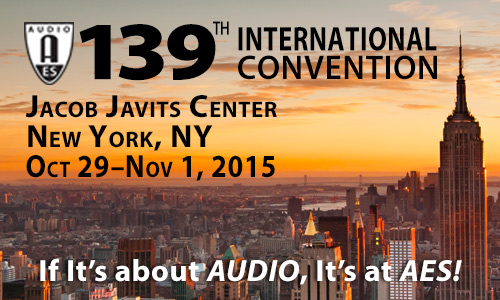AES New York 2015
Paper Session P20
P20 - Forensic Audio
Sunday, November 1, 9:00 am — 10:00 am (Room 1A07)
Chair:
Rob Maher, Montana State University - Bozeman, MT, USA
P20-1 Advancing Forensic Analysis of Gunshot Acoustics—Rob Maher, Montana State University - Bozeman, MT, USA; Tushar Routh, Montana State University - Bozeman, MT, USA
This paper describes our current work to create the apparatus and methodology for scientific and repeatable collection of firearm acoustical properties, including the important direction-dependence of each firearm’s sound field. Gunshot acoustical data is collected for a wide range of firearms using an elevated shooting platform and an elevated spatial array of microphones to allow echo-free directional recordings of each firearm’s muzzle blast. The results of this proposed methodology include a standard procedure for cataloging firearm acoustical characteristics and a database of acoustical signatures as a function of azimuth for a variety of common firearms and types of ammunition.
Convention Paper 9471 (Purchase now)
P20-2 Forensic Sound Analyses of Cellular Telephone Recordings—Durand R. Begault, Audio Forensic Center, Charles M. Salter Associates - San Francisco, CA, USA; Adrian L. Lu, Audio Forensics Center, Charles M. Salter Associates - San Francisco, CA, USA; Philip Perry, Audio Forensics Center, Charles M. Salter Associates - San Francisco, CA, USA
Recordings involving cellular telephones or personal digital assistants (“PDAs”) are increasingly the source evidence in audio forensic examinations, compared to recordings originating with other devices such as hand-held digital recorders. On modern PDA cellular telephones recordings can be made either directly to the telephone or transmitted as voice mail messages. The current investigation focuses on differences in the two types of recordings in terms of dynamic range and linearity of levels. Such information can be important for characterizing the distance of sound sources relative to the microphone and are important for understanding transformation of recorded speech and non-speech sounds.
Convention Paper 9472 (Purchase now)
